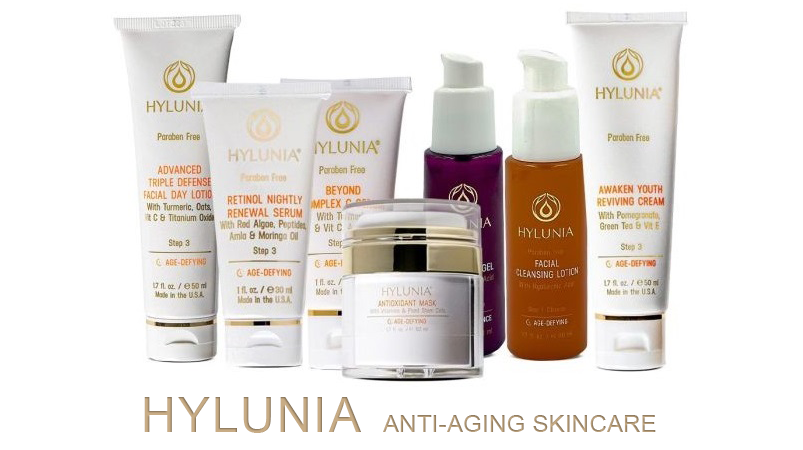
As our skin matures, it deserves a little extra care and attention. Skin changes are a natural part of aging, but with the right ingredients, we can age with grace and keep our skin looking its best. The key lies in ingredients that help support elasticity, hydration, and overall skin health.
Contents
- Why Mature Skin Needs a Different Approach
- Retinoids: The Gold Standard for Aging Skin
- Hyaluronic Acid: Deep Hydration for Plump, Glowing Skin
- Peptides: The Building Blocks for Firmer Skin
- Vitamin C: Brightening and Protecting
- Niacinamide: The All-Around Skin Smoother
- Ceramides: Strengthening the Skin Barrier
- Building a Routine for Mature Skin
Why Mature Skin Needs a Different Approach
Mature skin undergoes a variety of changes, from decreased collagen production to reduced moisture retention. These changes mean that the products you used in your 20s may no longer cut it. Here’s why:
- Loss of Collagen and Elastin: As we age, our bodies produce less collagen and elastin, leading to sagging and wrinkles.
- Thinner Skin: Over time, skin becomes thinner and more fragile, making it more susceptible to damage.
- Decreased Oil Production: Mature skin often lacks the natural oils that keep it hydrated, leading to dryness.
These changes are completely normal, but they do call for a bit of ingredient upgrading in your skincare routine. Let’s explore the best options to help mature skin stay smooth, hydrated, and resilient.
Retinoids: The Gold Standard for Aging Skin
Retinoids, derived from vitamin A, are powerhouse ingredients for mature skin. Known for their ability to boost cell turnover and stimulate collagen production, they’re ideal for addressing wrinkles, age spots, and uneven skin texture.
Retinol vs. Prescription Retinoids
While prescription retinoids (like tretinoin) are more potent, over-the-counter retinol is a gentler option that can still provide impressive results. Start with a lower concentration if you’re new to retinoids to allow your skin time to adjust.
Benefits of Retinoids
- Boost Collagen Production: Retinoids help the skin produce more collagen, which improves firmness.
- Speed Up Cell Turnover: Faster cell turnover means fresher, brighter skin and fewer visible age spots.
Retinoids can be drying initially, so pair them with a good moisturizer to minimize irritation.
Hyaluronic Acid: Deep Hydration for Plump, Glowing Skin
As we age, our skin naturally loses moisture, which can lead to dullness and accentuated fine lines. Hyaluronic acid is a hero when it comes to hydration. It can hold up to 1,000 times its weight in water, making it an incredible hydrator.
How Hyaluronic Acid Works
Hyaluronic acid attracts water to the skin’s surface and traps it there, providing a plumping effect that softens fine lines and makes the skin look more radiant. It’s especially beneficial for those with dry or combination skin.
To maximize results, apply hyaluronic acid to damp skin and follow up with a moisturizer to lock in the hydration.
Peptides: The Building Blocks for Firmer Skin
Peptides are short chains of amino acids that signal skin cells to produce collagen and elastin. Think of them as the little messengers that tell your skin to keep up its strength and resilience. For mature skin, this is especially beneficial.
Benefits of Peptides for Mature Skin
Peptides strengthen the skin barrier, enhance firmness, and improve elasticity. They’re gentle enough for daily use and pair well with other anti-aging ingredients like hyaluronic acid and niacinamide.
Look for peptides in serums, moisturizers, and even eye creams to support the delicate skin around the eyes.
Vitamin C: Brightening and Protecting
Vitamin C is a potent antioxidant that protects skin from free radicals, the molecules responsible for premature aging. It also brightens skin tone and helps reduce the appearance of dark spots and sun damage.
Choosing the Right Vitamin C Product
When selecting a vitamin C product, look for L-ascorbic acid, the most effective form of vitamin C. Store it in a dark, cool place to prevent it from oxidizing and losing effectiveness. Apply it in the morning under sunscreen for maximum protection.
Vitamin C works wonders for brightening and firming, making it an excellent choice for mature skin.
Niacinamide: The All-Around Skin Smoother
Niacinamide, also known as vitamin B3, is a gentle yet powerful ingredient that supports skin barrier health, improves elasticity, and evens skin tone. For mature skin, it can help reduce the appearance of fine lines and enhance skin resilience.
Benefits of Niacinamide
- Anti-Inflammatory: Helps calm redness and irritation, perfect for sensitive skin.
- Oil Control: Regulates oil production, making it great for those with combination skin.
- Boosts Hydration: Works well with hyaluronic acid to keep skin moisturized.
Niacinamide is compatible with nearly all other ingredients, making it a versatile addition to any skincare routine.
Ceramides: Strengthening the Skin Barrier
Ceramides are fats, or lipids, that naturally occur in the skin barrier. As we age, our skin produces fewer ceramides, which can lead to dryness, sensitivity, and an overall loss of resilience.
How Ceramides Benefit Mature Skin
Ceramides work by reinforcing the skin’s protective barrier, locking in moisture and keeping irritants out. This is especially important for mature skin, which is more prone to dryness and environmental damage.
Look for ceramide-enriched moisturizers to help replenish your skin’s natural defenses.
Building a Routine for Mature Skin
Now that we know which ingredients are most effective, let’s create a simple yet powerful skincare routine for mature skin.
- Cleanser: Use a gentle, hydrating cleanser to remove impurities without stripping your skin.
- Serum: Apply a serum with either peptides, vitamin C, or hyaluronic acid for targeted benefits.
- Moisturizer: Use a rich moisturizer with ceramides to seal in hydration and protect the skin barrier.
- Sunscreen: Always use SPF 30 or higher during the day to protect from UV damage.
- Night Treatment: Apply retinoids at night, starting a few times a week and building up as tolerated.

